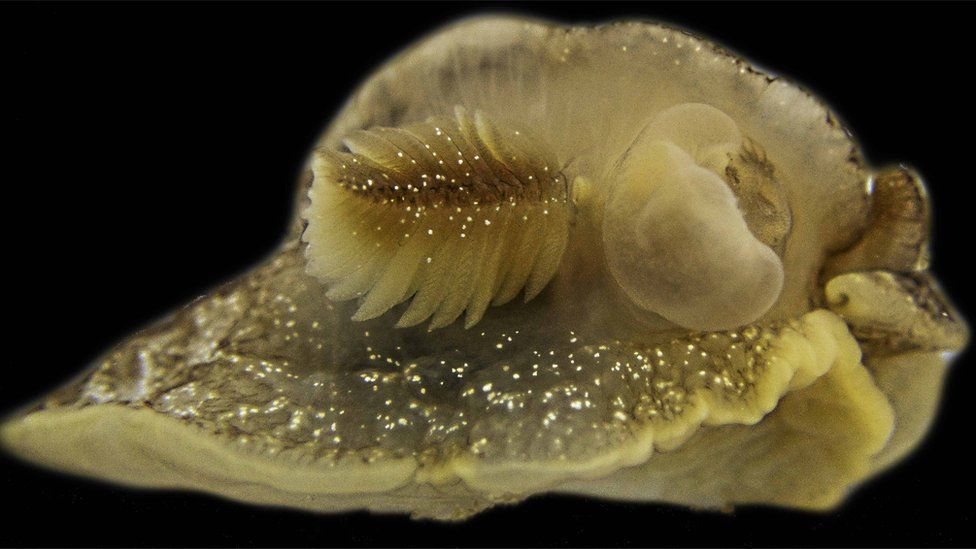ARTICLE AD BOX
 Image source, Ross Bullimore
Image source, Ross Bullimore
The sea slug has distinctive feathery gills on one side of its body
By Helen Briggs
Environment correspondent
A new species of sea slug has been discovered in UK waters.
It was caught off the south-west of England from a research ship.
The creature has been named Pleurobranchaea Britannica. It belongs to a group found in warmer waters, which could be migrating north due to climate change.
With ocean temperatures at record levels there is concern about the impact on marine life.
Ross Bullimore of the Centre for the Environment, Food and Aquaculture Science (CEFAS) made the serendipitous discovery.
About 100 different sea slugs are found in the seas off Britain and Ireland, but he knew instantly this was something special.
"It was like a light bulb going off," he said.
Image source, Cefas
Image caption,The discovery was made from the research ship, Endeavour
The scientists say the discovery shows we still have more to learn about life in our seas, which are among the best studied in the world.
"To find a new species that's not microscopic is quite exciting. It shows that there's still work to be done," said Peter Barry of CEFAS.
Beauty and variety
Sea slugs are a type of shell-less marine mollusc renowned for their remarkable variety and beauty.
Despite their diminutive size - growing only to around 5cm (2ins) in length- they are a top predator occupying a key position in the food chain.
Image source, Getty Images
Image caption,Sea slugs are known for their beauty and variety
Often referred to as an "indicator species", they can help scientists understand the health of marine ecosystems due to their sensitivity to the impacts of climate change and human pressures.
Members of the group to which the new species belongs - Pleurobranchaea - are usually found in northern Spain, Senegal and throughout the Mediterranean Sea.
"We're seeing the presence of a species [belonging to a group] which has always previously been recorded in warmer waters," said Ross Bullimore.
"It could indicate that what you're observing is this group of species being able to expand its range further because conditions are becoming more favourable or more appropriate for it."
With ocean temperatures at record levels there is concern about the impact on marine life.
Warmer oceans and heatwaves disturb marine species like fish and whales as they move in search of cooler waters, upsetting the food chain.
Experts warn that fish stocks could be affected.
Follow Helen on X @hbriggs.

 10 months ago
51
10 months ago
51








 English (US) ·
English (US) ·